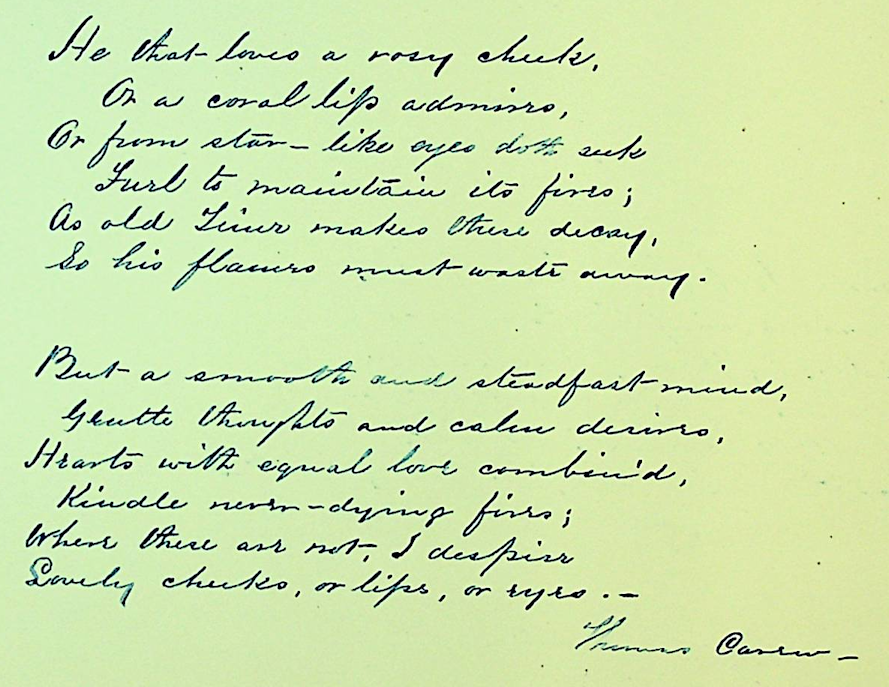Ariana Malthaner
To continue with poems lovingly inscribed by Isabella, we have ‘True Beauty’ by Thomas Carew.
Carew was 17th century English poet, who worked as a diplomatic secretary and was a courtier in the court of Charles I. His poetry was, according to experts, modeled on that of Ben Jonson, for whom Isabella had an affinity, as we have already seen.
He is not a particularly well-known poet, he is one of the Cavalier poets of the 17th century. Unlike their historical predecessors, Cavalier poets promoted both the crown, but also the simple pleasures of every day life. They didn’t touch on lofty subjects such as religion or philosophy, and instead focused on beauty, nature, and socialising, among other subjects.
The poem preserved by Isabella below describes the importance of mutual affection and intelligence, and is a lovely little piece of poetry.
As previously mentioned, Isabella does not appear to have been copying these poems from existing versions, but rather reporting them from memory or perhaps as she was hearing them. In this particular instance, in the fourth line, she has substituted the words ‘its’ for ‘his.’ There is no scribal error here, it is very clearly not the ‘his’ found in the original, or the published copies examined. This would indicate that Isabella had either been introduced to a version that was not the original, or had (understandably!) misremembered the exact wording.

He that loves a rosy cheek,
Or a coral lip admires,
Or from star-like eyes doth seek
Fuel to maintain its fires;
As old Time makes these decay,
So his flames must waste away.
But a smooth and steadfast mind,
Gentle thought, and calm desires,
Hearts with equal love combin’d,
Kindle never-dying fires;
Where these are not, I despise
Lovely cheeks, or lips, or eyes
